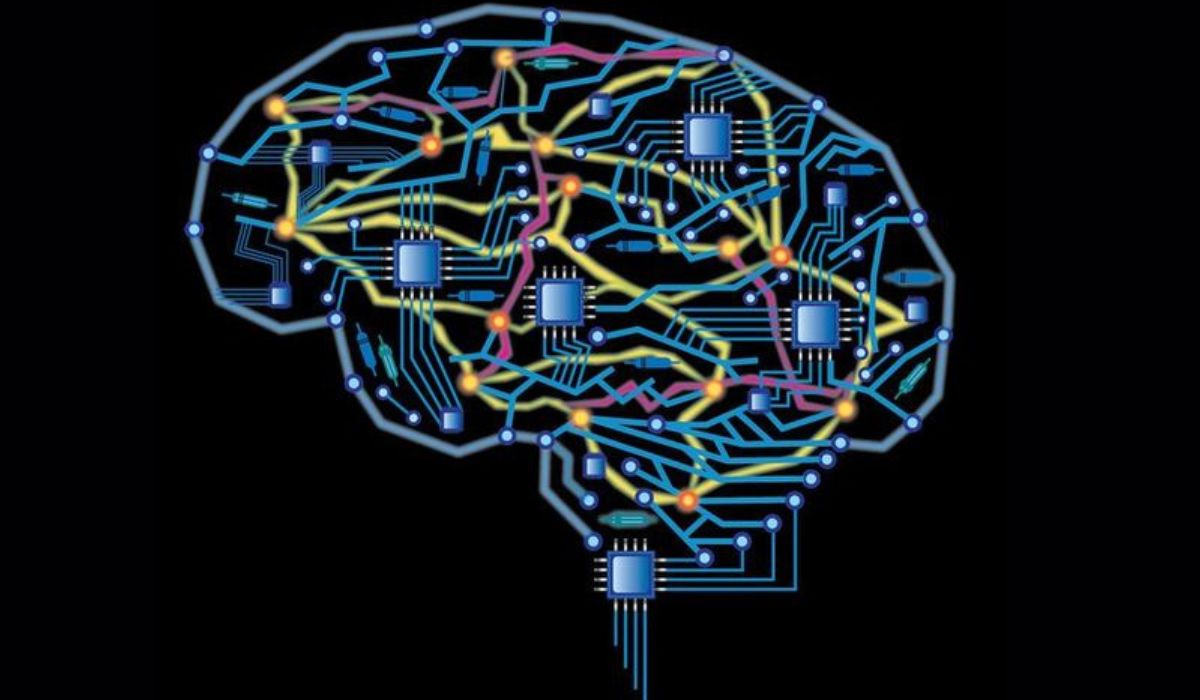The human brain is an enigma that has fascinated scientists, philosophers, and curious minds for a long time. The cognitive powerhouse raises the intriguing issue, “How much information can the human brain store?” In asking this, we dig into a topic that spans neuroscience, psychology, and even technological progress: the infinite depths of how much data can the human brain store, the brain’s potential to acquire, analyze, and retain information.
Unveiling the Brain’s Astonishing Storage Capacity
The human brain is a complex organ made up of around 86 billion neurons, and it serves as the hub of our mental universe. Its complexity must be explored in order to comprehend the magnitude of the data it can store.
Neurons: The Building Blocks of Information
Information storage relies heavily on neurons, which are commonly referred to as “communication messengers” in the brain. These specialized cells connect in complex webs, forming channels for the exchange and storage of information. Because individual neurons are capable of forming millions of connections, our brains can store tremendous amounts of information.
Synapses: Where Memories Take Shape
Synapses are the connections between neurons that allow for the exchange of chemical and electrical impulses. Synaptic plasticity is the change in the strength of synapses that helps with memory formation and storage. As a result of synaptic plasticity, the brain is able to store more information.
Exploring the Complexity of Memory
Memory is fundamental to human cognition, but it is also complex, with subtypes including sensory, working, and long-term storage.
Sensory Memory: Fleeting Impressions
Sensational recollections are stored temporarily in the mind’s sensory memory. It enables us to see life as a series of connected events rather than discrete instances. However, because of how fleeting it is, its usefulness is restricted.
Short-Term Memory: The Workspace of Thought
Like a mental notepad, short-term memory stores data briefly for use in the here-and-now. Because of Miller’s Law, it can only hold about seven things at a time.
Long-Term Memory: The Vast Repository
Long-term memory stores data for very long periods of time, and it seems to have a limitless capacity. The brain’s impressive memory capacity is the result of both explicit memories (of facts and experiences) and implicit memories (of skills and habits).
The Brain’s Limit: Fact or Fiction?
Even though our brains are capable of incredible feats of memory, we must recognize and work around its weaknesses.
Biological Constraints: Physical Boundaries
Although highly complex, the brain is nonetheless constrained by its physical structure. Despite their abundance, neurons and synapses can only fit in so much room. This suggests that the brain’s how much data can the human brain store tremendous storing capacity is constrained in some way.
Forgetting: The Overlooked Phenomenon
Although it’s viewed as a weakness, forgetting really sets the way for more effective retrieval of previously stored information. The brain has a built-in process for filtering out unnecessary data, which helps prevent information overload.
Leveraging Technology to Augment Memory
Our ability to store and recall information has been greatly aided by technological advancements in the information age.
External Storage Aids: Beyond the Brain
Computers and cellphones have essentially become external memory. They are like external memory banks, storing massive amounts of data to enhance human memory.
The Quest for Brain-Computer Interfaces
Brain-computer interfaces (BCIs) are the subject of cutting-edge study with the ultimate goal of unifying natural and synthetic memory. Even though they are still in their infancy, BCIs show promise for a future in which memory enhancement can overcome inherent limitations.
Conclusion
Combining biological complexity, cognitive feats, and technological advances, the human brain’s storage capacity is a phenomenon unlike any other. The brain’s adaptability, forgetfulness, and openness to external help demonstrate its robust and malleable character, even if the precise quantification of its store capabilities remains hard.
FAQs
Is there a definitive answer to how much data the brain can store?
The amount of information that the brain can store is continually being studied and debated.
Can we enhance our brain’s storage capacity?
Although we are physically unable to increase its capabilities, it may be augmented by means of additional hardware or in the distant future.
Why do we forget information?
Forgetting is a normal psychological function that aids in keeping the mind organized and focused on what’s most important.
Can memory-enhancing drugs increase storage capacity?
The long-term effects of medications that claim to improve memory are still unknown, but they may improve certain parts of memory.
How can I improve my memory in everyday life?
To improve memory, you should (a) do mental exercises; (b) keep a healthy lifestyle; (c) get plenty of sleep; and (d) practice mindfulness.











